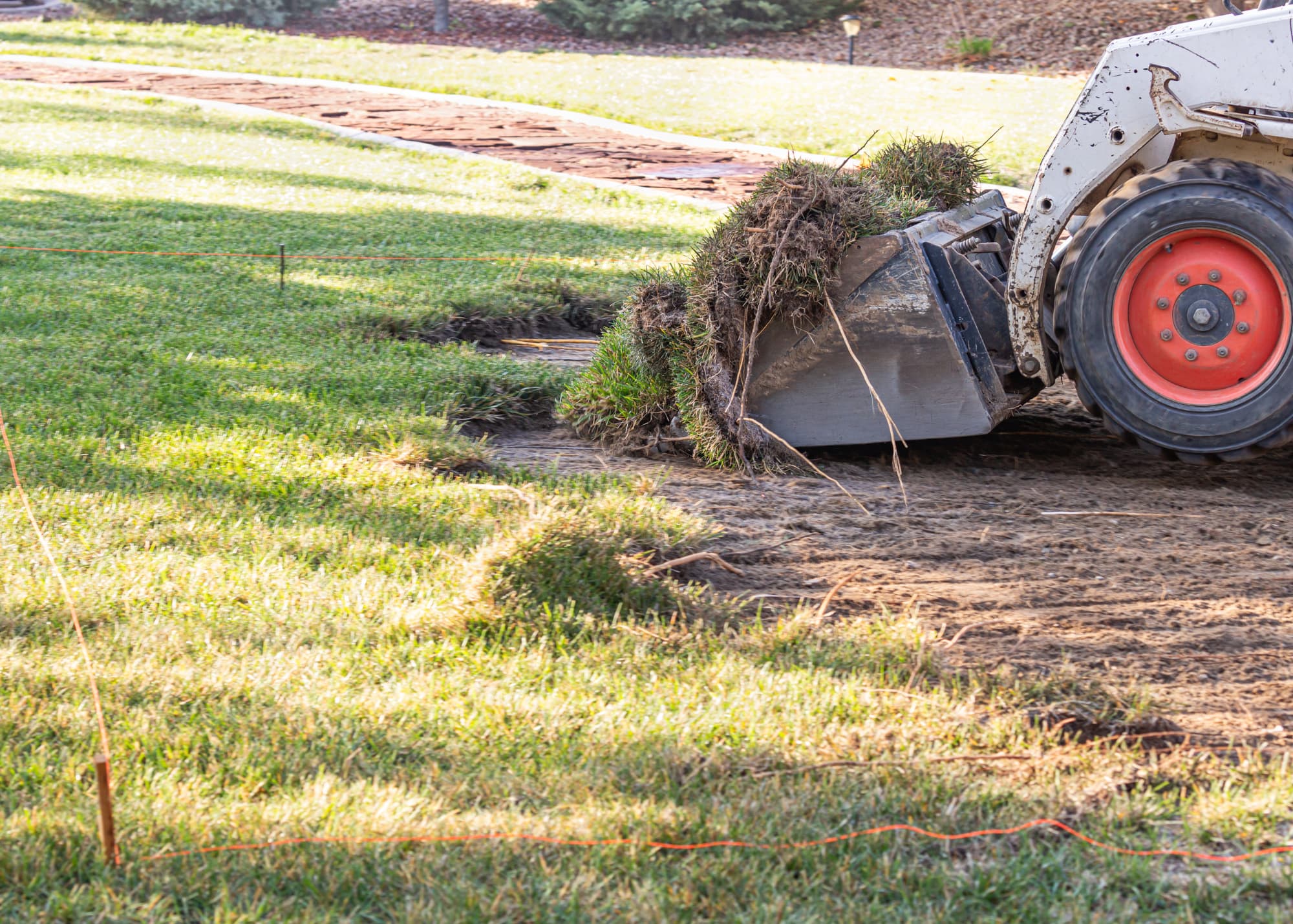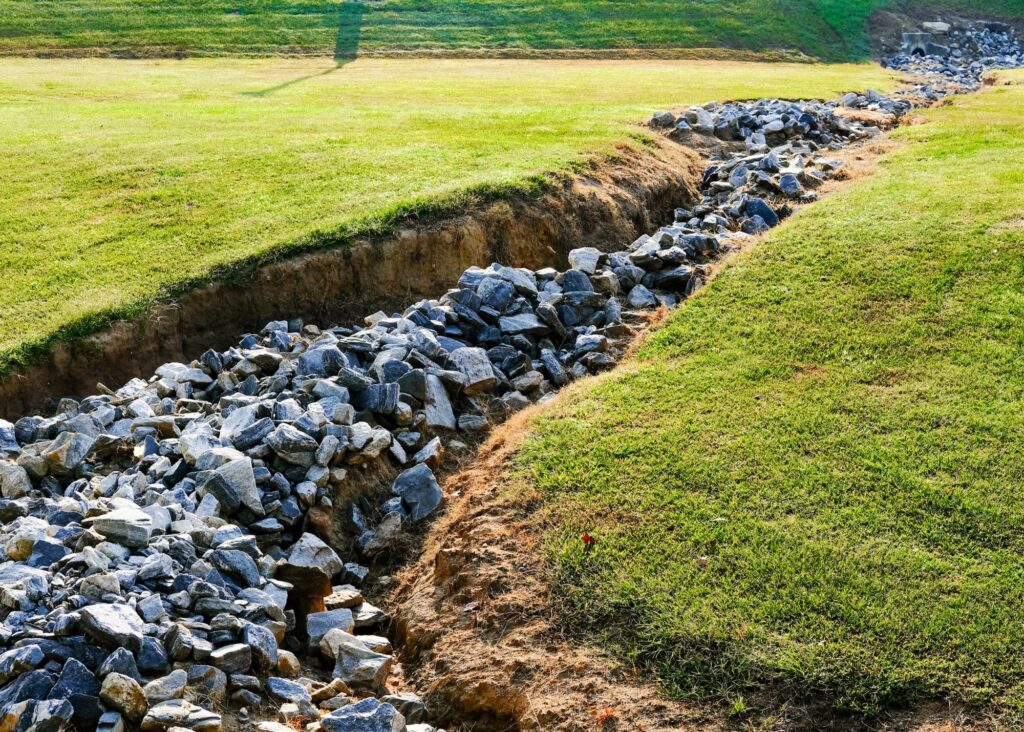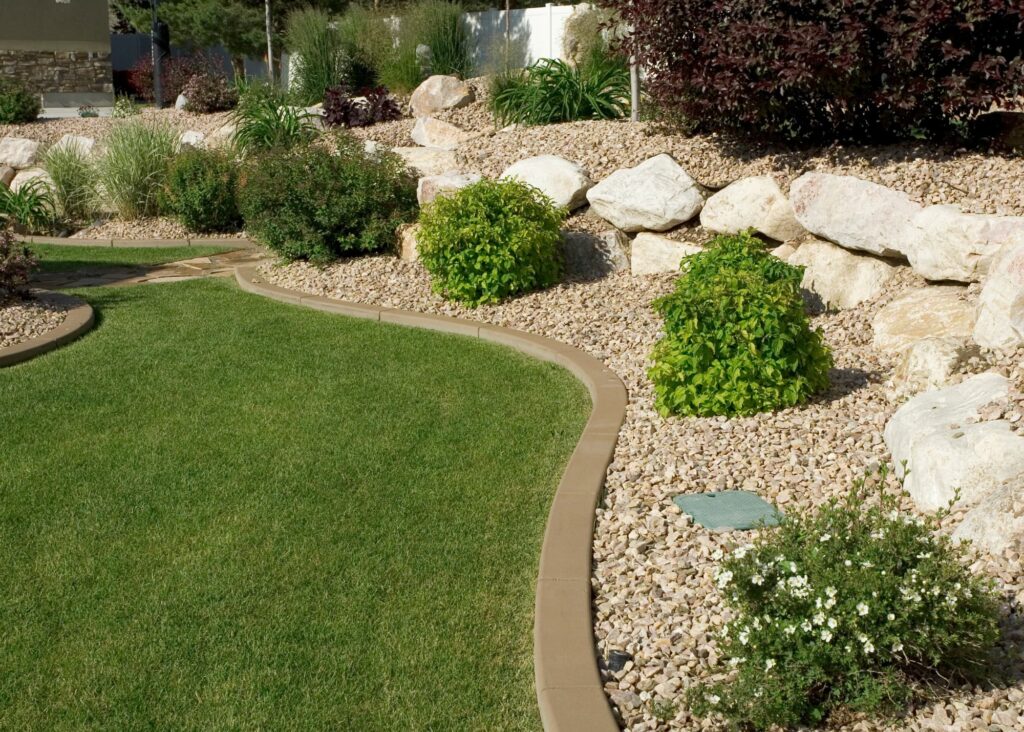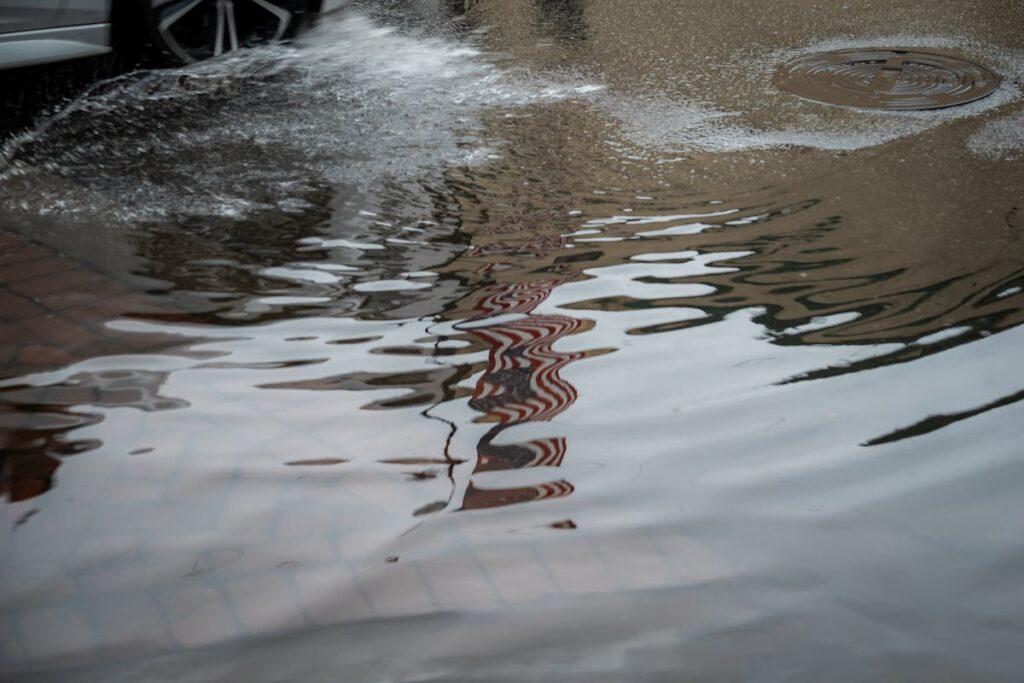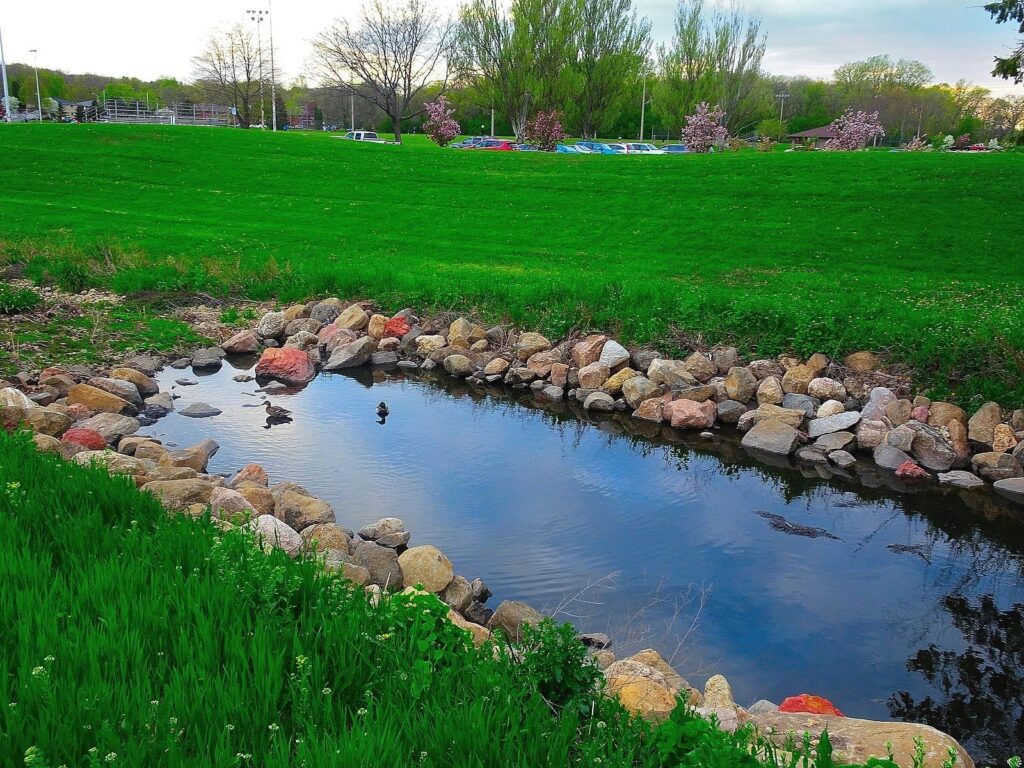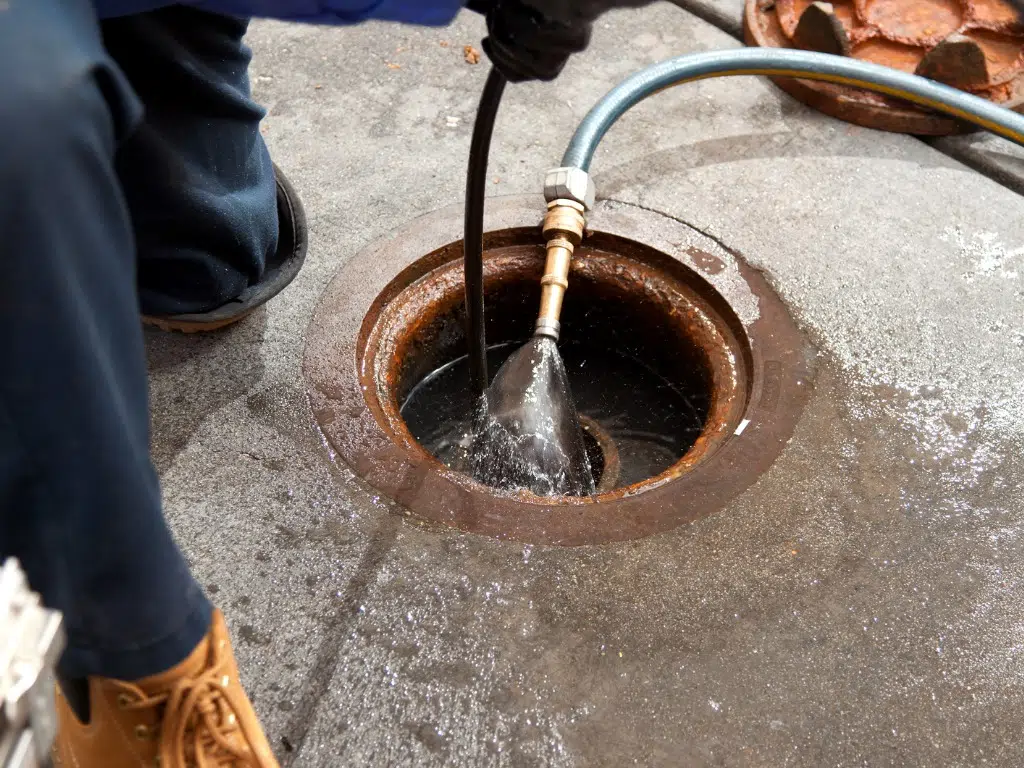You may have heard of yard grading as a strategy to address poor drainage issues, but what is it? How do you grade a yard for drainage problems? And can you DIY a yard grading project?
Maybe you’re imagining someone showing up with a clipboard, a red pen, and a list of criteria to “grade” your yard like a teacher reviewing a paper. However, grading is actually a major home improvement project that involves creating a subtle incline in your yard that allows for water to runoff and drain without causing flooding, pooling, excess mud, or property damage.
Yard grading, which is also called yard leveling, lawn leveling, and ground leveling, is one of the most effective ways to protect your property from the problems that come with poor drainage. Combined with a professionally installed drainage system, yard grading eliminates many of the frustrations you may be dealing with because of a soggy, wet yard.
Yard grading is a crucial part of landscape design, ensuring effective drainage and preventing water damage. A healthy yard is a well-graded yard!
The Importance of Proper Yard Drainage
When a yard has drainage issues, the problems just keep piling up. Drainage problems may cause the following problems (and more):
- Flooded areas
- Soggy grass
- Bald patches in your grass
- Damage to your home’s foundation
- Wood rot
- Damp crawlspaces
- Soil erosion
- Opportunities for mosquitoes and other pests to breed
- Loss of full use of your yard
A comprehensive drainage system ensures that these problems are resolved. There are a number of drainage resolution strategies, but some of them may not be feasible for you because of your budget, property, or aesthetic preferences.
The good news is that drainage issues can almost always be resolved by straightforward lawn regrading combined with improved drain management infrastructure like French drains, better downspouts, and catch basins.
Common Drainage Solutions (Including Yard Grading)
Drainage swales: Shallow, broad channels that use vegetation to direct water away from structures and landscaped areas
French drain: A gravel-filled trench with a perforated pipe that collects and redirects excess water
Catch basins and drains: Inlets or grates installed in low-lying areas to collect water and channel it into an underground drainage system or storm sewer
Dry wells: Underground structures that allow water to seep into the soil, typically used in areas with well-draining soil and high levels of precipitation
Rain gardens: Shallow, vegetated depressions that capture and absorb runoff, allowing it to slowly soak into the ground
Retention ponds: Larger, engineered basins that collect and temporarily store runoff, allowing it to slowly release into the surrounding area or drainage system
Downspout extensions and splash blocks: Simple solutions that direct water from downspouts away from the foundation, either through extended pipes or concrete or plastic splash blocks
Permeable surfaces: Using materials like permeable pavers, gravel, or specialized concrete mixes that allow water to infiltrate through the surface, reducing runoff
Green roofs: Roofs with a vegetative layer that absorbs and retains a significant amount of rainwater, reducing the burden on drainage systems
Grading and sloping: Proper grading and sloping of the yard that create gentle slopes to direct water away from structures and prevent pooling
What is the Yard Grading Process?
Wondering how to grade a yard? It’s quite a task. Lawn grading repairs drainage issues through a labor intensive but incredibly effective process.
When you choose the landscaping professionals at Ware Landscaping, you can expect to be serviced by an attentive and experienced team of hard-working drainage pros. Here is an overview of what we will do when we regrade your yard.
Stage 1: Assessing & Planning the Project
First, we’ll assess the existing topography. We need to get to know your current slopes, the high and low points in your yard, and what drainage problems you are experiencing.
Next, we will determine the desired drainage pattern. Based on our assessment, we will develop a comprehensive drainage plan that also identifies any additional drainage infrastructure that needs to be installed such as French drains, new downspouts, or even retaining walls.
We need to make sure that water is directed away from your home, outbuildings, play areas, and landscaping. Grading the yard away from the house protects your foundation, crawlspaces, siding, and more from water damage.
Stage 2: Grading & Earthwork
Using heavy equipment like bulldozers, skid steers, excavators, front-end loaders, backhoes, graders, and more, we will remove or reshape the existing soil and ground surface, according to the drainage plan.
We may need to add or remove soil to create the desired slopes and contours. At this time, we will also implement any of the additional strategies to improve the drainage and appearance of your yard.
Once grading is complete, we have to compact the soil and stabilize the new slopes. This will prevent erosion over time.
Stage 3: The Finishing Touches
After we complete the grading and place all of the new drainage features, it’s time to help your yard meet its true potential.
We’ll install topsoil and either sod or grass seed, depending on your preferences and needs. We’ll add plants, gardens, trees, and any other desired elements to make your yard more beautiful than it has ever been. We’ll also establish post-grading maintenance patterns that you can keep up with when we’re done!
Homeowners in Hinsdale can benefit from our expert sod installation in Hinsdale to complement proper yard grading.
Benefits of Yard Sloping
The benefits of a well-graded yard include:
- Directing water away from structures
- Preventing water pooling and soil erosion
- Protects foundations, basements, and crawlspaces from water damage
- Reduces the risk of mold and mildew growth
- Enhances curb appeal
- Increases property value
- Promotes a healthy landscape
- Prevents waterlogged soil
- Ensures proper nutrient distribution
Yard Grading FAQ
As the Naperville area’s leading drainage experts, we answer a lot of questions about drainage, including yard grading. These are some of the most frequently asked questions we hear about how to grade a yard for drainage.
What does yard grading mean?
Yard grading is the process of changing the slope of a yard so that water moves from higher to lower ground, away from buildings, landscaping, flooded areas, and more. By creating a subtle slope, you can resolve frustrating drainage problems on your property.
How much does grading cost?
The cost of yard grading is dependent upon many factors, including things like how much excavation needs to be done, the size of the property, how substantial the regrading needs to be, and other factors.
It typically costs between $0.40 and $2.00 per square foot, making a small yard between $500-1000. The cost of grading an average suburban backyard or lot in Naperville and the surrounding areas is between $1,000 and $5,000.
Why is land grading so expensive?
Yard grading can be an expensive project due to the significant labor costs involved in having skilled professionals operate heavy machinery like bulldozers, skid steers, and excavators to reshape the landscape.
Additional costs stem from the potential need for materials such as topsoil, gravel, drainage pipes, and landscaping elements, as well as site preparation work like vegetation removal.
The complexity of his kind of project may also include:
- Steep slopes
- Large yard areas
- Existing drainage issues
- Need for permits
- Regulatory compliance
- Additional installation costs
Is yard grading a DIY job?
There are a lot of projects that homeowners can tackle on their own, but grading your yard is probably not one of them! Even experienced DIY-ers can struggle with how complex the work is, especially because of the amount of heavy equipment is required.
While DIY yard grading may seem like a cost-saving option, attempting it without proper expertise, experience, and equipment can lead to costly mistakes, safety hazards, and long-term drainage issues. Lack of knowledge about drainage patterns, slope calculations, soil types, and grading techniques, combined with the absence of heavy machinery like bulldozers and graders, makes it difficult for homeowners to achieve effective and lasting drainage solutions.
Even worse, improper grading can result in water pooling, soil erosion, damage to underground utilities or even the home’s foundation, and failure to comply with local regulations can bring about fines or legal problems.
Correct slopes make selecting the right drain style much easier.
Who can fix the grading around a house?
Because grading isn’t a good DIY project, the best solution is to hire a professional landscaping company like Ware Landscaping to fix the grading around your house. Ware Landscaping has the expertise, experience, and specialized equipment necessary to properly grade your yard and ensure effective drainage.
Ware Landscaping Can Grade Your Yard & Solve Your Drainage Problems
With our team of skilled professionals and our access to heavy machinery, Ware Landscaping can accurately assess the existing topography, calculate the required slopes, and reshape the landscape to direct water away from your home and other structures.
We understand the intricacies of drainage patterns, soil types, and grading techniques, allowing them to create a comprehensive drainage plan that addresses any issues and prevents future problems.
Contact us today to find out more about how we can solve your drainage problems with a newly graded yard.

